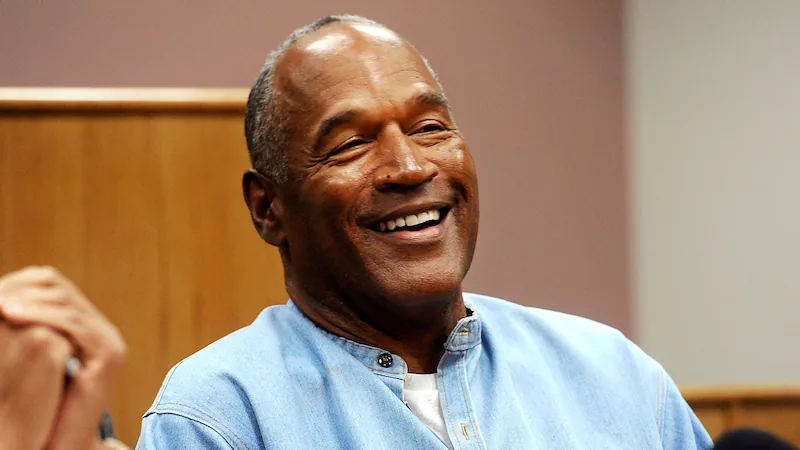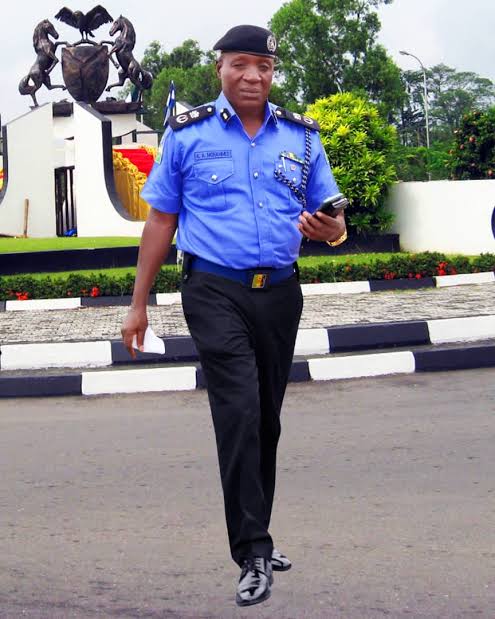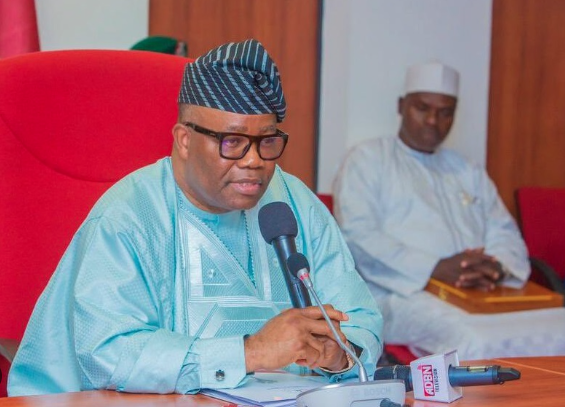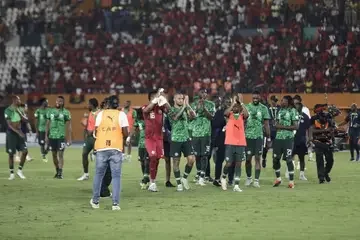How Social Media Shaped Nigeria’s Democracy
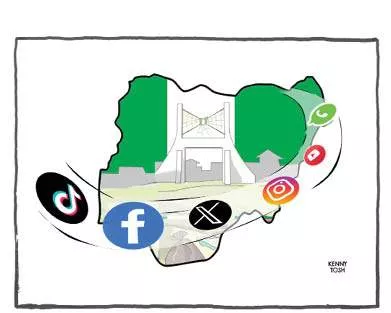
Since the military returned to the barracks in 1999, Nigeria has held seven elections every four years. Of these periods, three were done without the direct impact of social media: 1999, 2003, and 2007. But 2011 marked a turnaround.
Ex-President Goodluck Jonathan, who won the election that year, declared his presidential bid on social media and even published a book on his Facebook conversations with Nigerians. He also went further by appointing an aide on social media, a step that every other government, both at the federal and state levels, has maintained till date.
Perhaps realizing the power of social media, which influenced the victory of the Peoples Democratic Party (PDP) in 2011, the opposition used it to launch a major campaign that ended the 16-year rule of the PDP.
#OccupyNigeria Protest
The opposition built on the momentum from the #OccupyNigeria protest to unseat the PDP. Interestingly, mobilisation for #OccupyNigeria started on Twitter, now X. While millions of Nigerians saw the protest through the lens of calling the government to order over a harsh and hostile policy, a former governor of Ekiti State and APC chieftain, Dr. Kayode Fayemi, confessed that the intent of the protest was political.
In his speech at the 60th birthday of Professor Udenta Udenta, a founding father of the defunct Alliance for Democracy, Fayemi noted: “We all said subsidy must be removed. But we in ACN at the time, in 2012 (when the #OccupyNigeria protest held), know the truth… it is all politics.” And this worked effectively for the then opposition mega party-turn ruling party, the All Progressives Congress (APC), as it was able to build on this and launch a never-before-seen onslaught, primarily on social media, that ended the PDP’s 16-year rule.
However, there’s no election where the impact of social media has been felt like that of 2023.
#Obidient Movement as Third Force
The movement, which came into force a few months before the election, sent a loud statement. Since 1999, Nigeria’s presidential election has been a two-horse race, but the #Obidient Movement changed the dynamics.
According to statistics from the country’s electoral umpire, about 70% of Nigeria’s population is under 30, and those in this category were the most active during the elections. In the demography released by the Independent National Electoral Commission (INEC), the youth population topped the age distribution chart. And while results from the polls suggested that a huge number of them did not go to polling stations, they, however, used their mobile devices to shape the election from the comfort of their homes, offices, schools, and worship centres.
One interesting thing about the Labour Party campaign was how the youths used their social media power to effect a change in the campaign structure. The presidential candidate had unveiled his campaign council, which included Major General John Enenche, the younger brother of one of his major backers, Pastor Paul Enenche. At the time of EndSARS, the General was a spokesman for Defence Headquarters. In his role as spokesman, he had described the pictures the protesters released as evidence that soldiers shot at them as fake. In anger, the youths rejected Enenche’s inclusion on the campaign council. After trying to pacify them without any luck, Obi pandered to their wish by dropping the general.
EndSARS Movement
Another campaign powered by social media was #EndSARS in 2020. Nigerian youths used the protest to demand the end of the police unit, the Special Anti-Robbery Squad (SARS), for its brutality.
It was a social campaign that began by using X to assemble youths in major cities to stand up and speak against police brutality and other forms of impunity by security forces and those in government.
Apart from sacking SARS, the #EndSARS protests became a political voice for youths who said they were tired of the “bad governance depicted by both the APC and PDP.”
It was thus unsurprising that after the historic #EndSARS protests, the majority of the voices, including notable Nigerians in the entertainment industry, formed an army of political campaigners for the Labour Party presidential candidate, who became popular among youths on social media.
Twitter Ban
When the Federal Government banned Twitter some months after the EndSARS protests, the youthful population saw it as an attempt to deprive them of their constitutional right of expression. Most of them felt the platform was targeted for being a strategic coordinating point during EndSARS. The ban occurred after Twitter deleted tweets made by ex-President Muhammadu Buhari over his threat to secessionists in the South East. The then-President, whose Twitter account was also temporarily suspended, had threatened to deal with those bent on destroying Nigeria through insurrection.
“Those of us in the fields for 30 months who went through the war will treat them in the language they understand,” Buhari had said, fuelling nationwide outrage.
The Nigerian government had claimed that Twitter was unfair, citing the persistent use of the platform for activities that it said were capable of undermining Nigeria’s corporate existence. While justifying the government’s action, Lai Mohammed, who was the information minister, accused the microblogging platform of sponsoring the EndSARS protest.
“The mission of Twitter in Nigeria is very suspect. Has Twitter deleted the violent tweets that Nnamdi Kanu has been sending? The same Twitter, during the #ENDSARS protests, that was funding #ENDSARS protesters,” the minister had said.
But Nigerians rejected his claim and kept on advocating for the ban to be lifted until the government eventually did so.
Reducing influence of political elite
Observers also noted that social media has also shaped Nigeria’s democracy by reducing the influence of the political elite and strengthening the masses. While conventional media can be controlled, social media is the exact opposite, as it has become a direct tool that the masses use for effective communication.
It is noteworthy that the major political parties in the country employed the mechanisms of social media to push their ideologies, programmes, and manifestos. Party followers and supporters went the extra mile to customise slogans such as BATified, Atikulated, and Obidients to identify with the leading presidential candidates in the last election.
The significance of social media was such that the electoral body used it as a medium to give first-hand information to the general public.
INEC announced the mechanisms used in conducting the elections for Nigerians, as well as the distribution of voting materials to all parts of the country via social media. When the INEC Chairman, Prof. Mahmood Yakubu, revealed to the country that some of the voting materials had been airlifted by the Nigerian Air Force, pictures of the exercise were widely circulated on social media.
Also, media platforms and civil society organisations used social media to expose a barrage of fake news and disinformation before, during, and after elections. It was discovered that the 2023 election was bombarded with false claims targeted at unsuspecting voters and altering reality as Nigerians went to the polls on election days.
Exponents of the impact of social media on Nigeria’s democratic journey have also espoused that another benefit of social media was live fact checks organised to keep candidates in check during electioneering, especially during debates. Credible media organisations used fact-checking to put the facts straight. In one of the instances, former Senator and spokesperson of the Peoples Democratic Party (PDP) presidential campaign council, Dino Melaye, shared a video of arrested political thugs on Twitter. The politician put the caption as: The APC thugs were arrested in Lagos on Friday, March 17, 2023. But a fact check revealed that the video was first released on YouTube on May 29, 2022. This was possible because of the readily available social media tools that fact-checking organisations deployed to verify claims. They also amplified their findings via social media.
It is quite significant to affirm that political awareness gained prominence during the 2023 elections as media organisations, politicians, activists, and other major stakeholders used TwitterSpace to hold conversations, debates, and topical issues about the country.
And with the growing influence of social media on Nigeria’s democracy, political analysts observed that because of this influence, politicking has now become an all-season affair, as opposed to the past, when political leaders only tried to engage with the citizens during the designated election period.
“These days, the campaign for the next election starts the very day you are pronounced the winner of this election because, with social media, opposition will never allow you any breathing space,” one of them observed.


